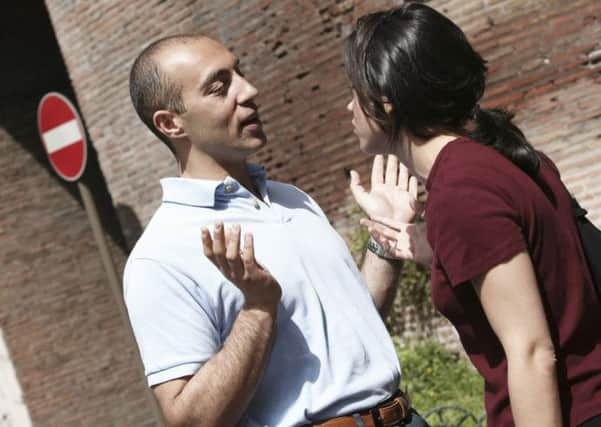Hannah McGill: Independence conflict nothing new


‘SHARED values” is a phrase that commonly crops up in discussions of What Makes Relationships Work, and one of which I tend to be wary. As Michael Gove’s recent attempts to define “British values” demonstrated, most things listed as “values” have such broad application as to be meaningless. You might hear “I hate injustice, and I believe in freedom” just as forcefully from a hardline lefty, a card-carrying member of Ukip, or anyone in between. A “very spiritual person” might picket abortion clinics, or just do a lot of yoga. You need specific information to get a sense of how unbearable someone might actually be to live with.
Scotland, of course, is currently contending with an issue which, whether or not you regard it as a question of values, certainly has the capacity to drive a wedge into relationships. If differing positions on the independence referendum have come between you and a loved one, a poll suggests that you are one of a million Scots for whom this is the case. The spiteful spats aren’t just on Twitter and Question Time: they have seeped into homes and workplaces, spurring discord between relatives, friends and work colleagues.
Advertisement
Hide AdAdvertisement
Hide AdPolitical differences within families are hardly a startling phenomenon. Long-held family traditions, once central to British voting behaviour, are fading, and in any case can hardly be brought to bear on a decision that’s never been presented before. And with many thousands of new teenage voters registered for the referendum, there’s liable to be a fair amount of deliberate rebellion against parental positions. But what about friends and partners? Do we need them to agree with us about politics – or is a bit of disagreement energising?
A lot of us simply assume that people we like will share our basic take on things; the first stages of a love affair or a close friendship can be so much about narcissistic excitement at finding someone we click with that the emergence of points of conflict can be an unpleasant shock. It’s possible that there were a few rows in the George W Bush household about abortion and gay marriage, both of which his wife Laura revealed that she supported – although only after he left office. I once went out with someone who admitted under pressure that for various religious reasons, he definitely knew that I was going to hell. That didn’t last.
Some are passionately engaged enough with the referendum to believe that one outcome or the other will constitute its own kind of hell, and thus can’t tolerate the views of anyone who wants to send them there. But as with many issues pertaining to this debate, there’s a positive as well as a negative spin. If there aren’t Yes and No-specific dating websites (and there aren’t… are there?), certainly it’s a good bet that a few romances have been struck up in the course of impassioned campaigning. Referendum babies could result. And when they ask their parents what brought them together? “Well, we both hated injustice, and believed in freedom…”
Little Scotland
THE world holds a number of communities that have settled far from their cultural origins, but that cling fast through generations to some elements of what has been left behind. Chinatowns are well known and long-established in many cities far beyond China. A Welsh enclave in Patagonia, established by a Welsh nationalist minister in the 1860s, still holds a few thousand Welsh speakers. There are Low German-speaking Mennonites in Mexico and Brazil. And then, closer to home, there’s Corby in Northamptonshire – sometimes referred to as “Little Scotland”. About 200 miles south of the Scottish Border, many Corby residents speak with Scottish accents, support Scottish teams and prize Scottish foods and traditions, thanks to the legacy of an influx of Scottish workers to the area’s now-defunct steel industry in the 1930s. With a sense of Scottish identity that could appear more stable than Scotland’s at the moment, might this be a comforting place to take refuge from those ever-increasing pre-referendum tensions? Not so much: since many residents retain a strong investment in Scotland’s future, the town holds its own mock referendum today. Maybe just somewhere to politely redirect those seasonal visitors from abroad who persist in believing that Scotland is “in England”, then?
Top billing for Clooney
MAYBE it’s all just a question of carrying on our arguments with dignity. Here, as is so often the case, I feel we can all learn something from George Clooney. He has made a calm, polite and contemptuous response to a sort-of apology from a sort-of newspaper which printed a story about his fiancée that he said was fabricated and racially inflammatory. “I thank them for their apology. Not that I would ever accept it.” No hysteria, no impoliteness – just the steadfast assertion that a wrong has still been done. Nor did Clooney accept the paper’s offer to him to boost their circulation by “putting his side of the story”. Because, disappointingly for those who believe that the famous deserve zero respect, he is not daft.